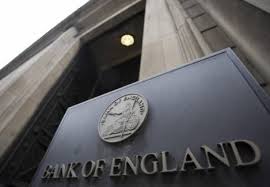Publisher: Maaal International Media Company
License: 465734
The Guardian: An imminent setback for the Bank of England in its fight against inflation
اقرأ المزيد
The British newspaper, The Guardian, said that the Bank of England (the central bank of the United Kingdom) is about to suffer a setback in the battle against high inflation this week, amid expectations of the first increase in the headline inflation rate, which includes food and energy, this year, which highlights the pressures resulting from the cost of living crisis.
The Bank of England announced at its last meeting on August 1, the first interest rate cut in more than four years, bringing the main interest rate to 5%.
The newspaper indicated that in a week of major updates on the British economy, official figures are expected tomorrow, Wednesday, to show inflation returning to above the bank’s target of 2% for the month of July, driven in part by the rapid rise in the prices of airline tickets, comprehensive holidays and hotels.
The newspaper quoted economists as saying that headline inflation is on track to rise to 2.3%, after previously remaining stable at 2% for two consecutive months, May and June, which could represent the first increase since December 2023.
The newspaper explained that these expectations come after a smaller decline in household energy prices in July compared to the same month last year, when prices fell sharply, meaning that the annual inflation rate is expected to rise.
It also quoted analysts as saying that while inflation in service prices is slowing, price increases in this dominant sector of the British economy are on track to remain above 5%, supported by airfares, all-inclusive holidays and hotel prices.
It added that this comes after a sharp rise in the price of one-night accommodation this year, partly reflecting new seasonal patterns since the lifting of Covid-19 lockdowns, and with hotels posting surprise prices to respond to increases in demand.
The newspaper noted that inflation has fallen sharply from its peak of 11.1% in October 2022 after the Russian-Ukrainian war led to an explosion in energy prices.
The newspaper pointed out that Threadneedle Street warned that inflation is likely to rise to around 2.75% in the second half of this year, driven by higher service sector prices and a flexible labour market in the UK. However, these inflationary pressures are expected to gradually fade, bringing headline inflation back to 1.7% within two years, before falling to 1.5% in 2027.
The Bank of England is expected to cut its base interest rate to around 3.5% before the end of 2025. However, the newspaper quoted Andrew Bailey, the bank’s governor, as saying that he will have to be careful not to cut borrowing costs too quickly or too sharply, amid concerns about ongoing inflationary pressures.
The newspaper quoted Catherine Mann, a member of the Bank of England’s Monetary Policy Committee, in press statements, that the underlying price pressures in the economy remain strong and show that the central bank needs to take a firm stance when setting interest rates. Mann, one of four policymakers who opposed a cut in UK interest rates this month from 5.25% to 5%, said service sector inflation was still too high and UK wages were rising faster than the Bank expected.
On headline inflation holding at the Bank’s 2% target in May and June, the banker said: “We shouldn’t be fooled by headline inflation,” explaining that falling energy and commodity prices had brought average inflation down to 2%, but they remained volatile and could push it higher again.
She explained that while commodity inflation had fallen, the cost of services had risen by more than 5% year-on-year, which she believed was inconsistent with sustaining headline inflation at 2%.
Mann said she feared there would be a “trigger” effect within the services sector, as service prices rarely fall, unlike goods prices, which in some cases have fallen to near pre-pandemic levels.
Part of this process, she continued, is “a desire to maintain certain wage relationships”, noting that the 10% rise in the minimum wage in April has put pressure on companies to raise wages higher up the wage scale.
She expected that higher shipping and transport costs would put pressure on the prices of goods produced in or through conflict zones.
Mann said that ongoing inflation shocks around the world would feed into the cost of British goods, and that a more volatile world would force central banks to keep interest rates high for longer to avoid another surge in inflation that would destroy household living standards.








